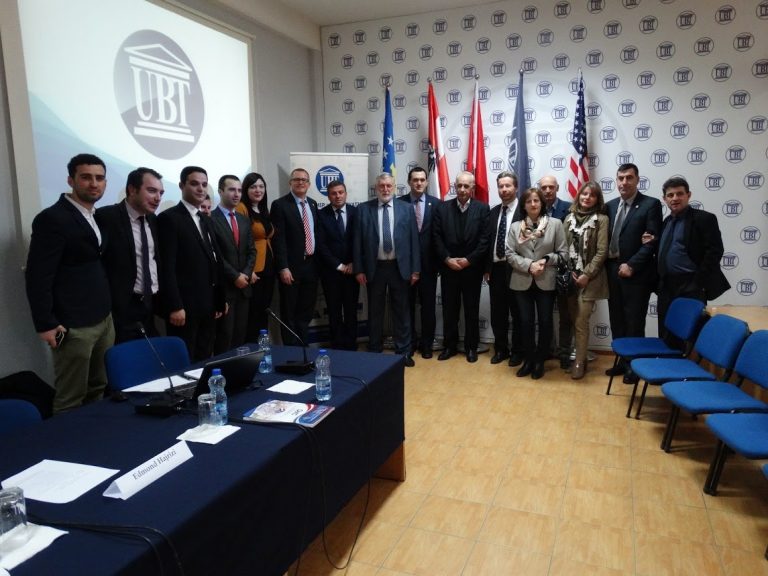
Austrian Model of Rural Development Integration Discussed
02/02/2016A conference “Austrian-Kosovo Agriculture Day 2016,” which focused mainly on the Austrian model of integration of rural development, was held at the UBT campus in Prishtina today. Panelists from Kosovo, Albania, and Austria presented their viewpoints on the topic of discussion.
Opening the conference, UBT Rector, Prof. Dr. Edmond Hajrizi, said that as part of its interests and focus on specific studies, the UBT was attaching a considerable attention to the development of agriculture, especially the food industry.
“Given the fact that food is the main product of the human beings, and considering also the facts that all food that is produced at the world level ends in September, the UBT will focus on advancing the studies in this field, by seeking alternatives aimed at solving this problem,” Hajrizi noted.
Commenting on the production chain aspects, Rector Hajrizi focused on the possible contribution that the UBT could make to the improvement of the quality of food products. In this respect Dr. Hajrizi praised the Ministry of Agriculture of the Republic of Kosovo, the mayor and the Municipality of Vushtrri, and Mr. Franz Fischler, President of the Alpbach European Forum, for the contribution to the development of agriculture sector in Kosovo.
Addressing the conference audience, Mr. Vezir Jonuzi, Deputy Minister of Agriculture of Kosovo, spoke about the subsidies that the Agriculture Ministry was providing to Kosovo farmers. Last year, according to Jonuzi, as many as 390 farmers, were assisted with funds amounting to over 20 million euros, which helped opening of around 2,500 new jobs. This year, he advised, this ministry was planning to assist the farmers with over 43 million euros.
Vushtrri Mayor Bajram Mulaku said the municipality he was leading was identified as an area of the potato production; however, he noted, there were potentials for other food products, given the fact that the municipality possesses an arable area of over 6,000 irrigatable hectares of land. “During the course of last year, the Vushtrri Municipality, in cooperation with the Ministry of Agriculture, assisted as many as 17,00 farmers with 330.000 euros,” Mulaku said.
Carl Pauer, a veterinary practitioner from Austria, said he had been operating in Kosovo for a long time in order to assist the Kosovars in cattle-raising practices, and in particular the distribution of cows to the farmers. According to him, the farmers in Kosovo have benefited a lot with the production of milk and meat. “From now on, we will engage in profits from the cultivation and increasing of the number of the cows. Kosovo’s territory has a lot of similarities with that of Austria, but agriculture education should be one of Kosovo’s priorities,” said Pauer.
Bianca Duro, an agriculture specialist representing Almako, focused on the prospects of the development of cattle-raising sector for the need of the Albanian market in particular, namely Kosovo and Albania, but also to target European markets.
Mr. Franz Fischler, President of the Alpbach European Forum and former EU Commissioner of Agriculture, focused on the potentials of the agriculture sector in Kosovo. Noting that Kosovo had huge potentials to develop its agriculture, he asked: “How can we make agriculture a success story?” According to Fichler, the success has not to do solely by developing agriculture but also he food production; therefore, according to him, one has to think about all food production chains involved in the process.
“Markets are not managed by producers but by consumers, therefore one has to think also in this respect — to make sure that the food is safe, it is of a high quality and of reasonable price,” said Fischler in his closing remarks.
At the conclusion of the conference, Mr. Fischler and Mr. Jonuzi signed a declaration calling for support of Kosovo’s admission at the World Food Organization.